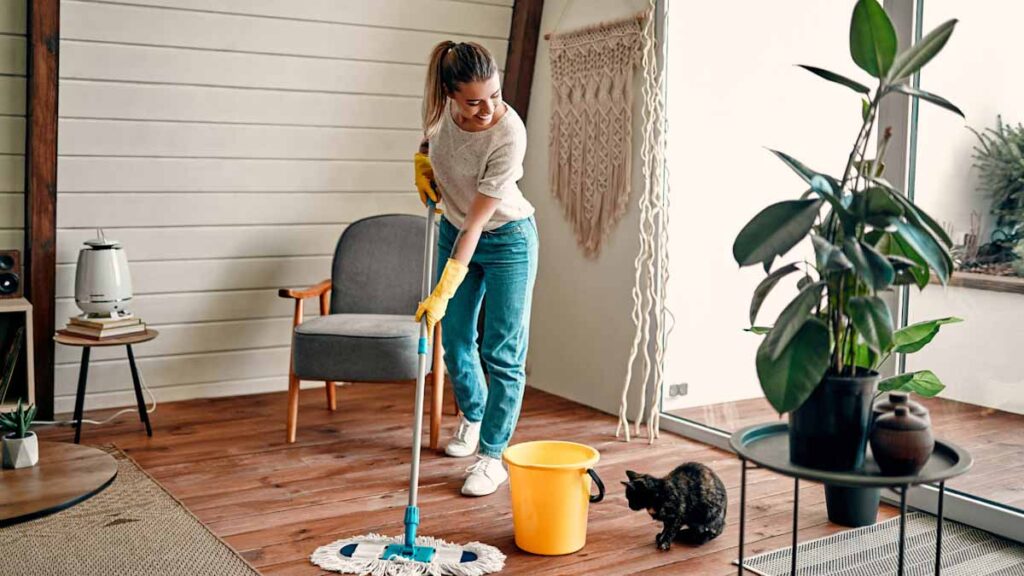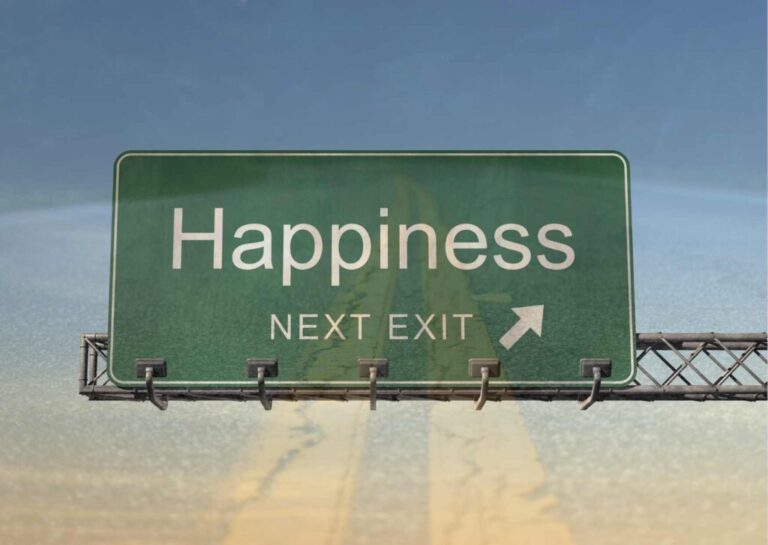
In the movie Limitless (2011), the main character, Eddie Morra, accidentally takes a pill that dramatically increases his IQ to a genius level. The first thing he does is clean his apartment. Later, when this character relapses, the first thing to go is his sense of cleanliness and when his IQ rises again, he again becomes clean.
This scene struck me as memorable because I have long suspected a correlation between one’s level of cleanliness and happiness. Additionally, many people have told me that I am one of the cleanest people they know. So besides being happy, I am also clean. But is there truly a correlation?
Connection Between Cleanliness and Happiness
The connection between cleanliness and happiness might not be immediately obvious, but our sense of cleanliness corresponds to our personal level of organization, which in turn leads us to achieve more, whether it be at home or work. This increased achievement ultimately leads to more happiness.
Similarly, being clean is a positive habit that contributes to a virtuous cycle of happiness, meaning that the more “right” habits we engage in (e.g., being clean, productive, healthy, and helpful), the more “right” habits we want to engage in, and the more “wrong” habits we want to avoid.
On the other hand, the more we engage in “wrong” habits such as being dirty, procrastinating, and eating unhealthily, the more inclined we are to continue engaging in these negative habits. This leads to a vicious cycle of unhappiness, as we start to cut corners and become less motivated to complete tasks properly. This ultimately results in lower quality of life and less long-term happiness.
Cleaning Doesn’t Have To Be Hard
There is nothing fundamentally difficult about cleaning. We just need to invest a little bit of time into it, like 5-15 minutes per day. With routine, enough time, and practice, we will learn the proper way to do it, which won’t make us feel like it’s a tiring chore or that we are wasting our life cleaning.
After all, cleaning is a “maintenance task,” meaning that we maintain our setup to keep it working in its ideal way. For example, I often see houses where owners never bother to clean their walls, windows, or corners, no matter how long they have lived there. But even walls will get dirty over time, so they need to be cleaned eventually (say, once every 5 years), not to mention other objects that require even more regular cleaning.
A failure to clean means that we will have to live in a messy house, which will affect our health, focus, and overall well-being, as well as cause unnecessary damage to objects that aren’t maintained. This can result in higher costs in the long run compared to the cost of keeping everything clean and working.
Additionally, some people claim that they can function in a messy house, somehow overlooking a pile of things they never do, which eventually adds up from a quick fix activity into a whole blown task that needs a lot of dedicated attention. For example, I once saw a garbage problem become so severe that the homeowner had to call a specialist to deal with it. Certainly, the whole incident could have been avoided if this homeowner was a bit more proactive about their chores.
This is not to say that we need to become “clean freaks” or “germophobic.” A few minutes per day can be enough to eventually clean even the dirtiest place, object, or apartment. Again, if you are spending too much time on cleaning, you are probably doing it wrong.
There is a time and place for cleaning, so we shouldn’t be cleaning when we need to work, pick up children from school, or during other “more important” tasks. However, even in the busiest schedule, we should find a few minutes to be clean and organized. It is almost as if doing chores, although unpleasant, is a necessary first step that allows us to do things that we otherwise need or want to do.
The Five Steps to Being Clean
After trying to explain the importance of cleanliness to one of my former flatmates, who happened to be a slob (there’s always one, isn’t there?), I developed a five-step approach to maintaining a clean environment. These five steps are as follows:
1) Clean after yourself
2) Clean after others
3) Help others
4) Know your assigned chores
5) Do something extra
1 + 2) Clean up after yourself & others – These two points are pretty self-explanatory. We should first take care of our own chores but also make the effort to clean up after others. After all, if you’ve ever lived with people who aren’t your family, you might have encountered the “forgotten spoon” phenomenon. This refers to a spoon that no one knows who used or where it came from, so even the most organized people forget to clean up after themselves, making it paramount for everyone to pitch in and pick up the slack.
By doing a bit extra and cleaning up after someone else, we can avoid accumulating piles of forgotten items like spoons, pens, and pots that no one wants to clean because they don’t remember using them. And if everyone does this, it will contribute to a truly great cleaning dynamic!
3) Help others – Similarly, some tasks are just too big and difficult, which is why helping others is a great way to make cleaning easier and more enjoyable for everyone. Just check with your friends, family, or coworkers on a regular basis if they need help, and everyone will be happy that you exist.
4) Know your assigned chores – Another smart habit is to assign chores. These are specific tasks that people have to do on a regular basis, so it’s helpful to know who is responsible for each task. For example, someone needs to wash the kitchen, clean the floors, and take out the garbage. Hopefully, the assigned chores are fair, as otherwise this can lead to fighting and resentment.
Here, we should remember a simple guideline that I teach at my happiness at work seminar:
If something consistently isn’t getting done, it is because no one was assigned to do it.
Indeed, we may think that person A or B should do a certain task, but if they don’t do it, we shouldn’t immediately blame them. Instead, we should communicate clearly which chores are assigned to them and what we consider to be a satisfactory completion of that task. Afterwards, if the task still isn’t getting done, we can talk to the assigned person about why this isn’t happening. Sometimes, it may not entirely be their fault as they may already have a lot on their plate. In such cases, someone else may need to take on the task or you may need to think of alternative organizational methods to get the job done.
For example, in a corporate setting, management often assigns various responsibilities to their employees, some of which are crucial to the corporate work and others that are not, still expecting their employees to complete all of these tasks. Eventually, when something cannot be accomplished, the company must determine whether their employees are genuinely overworked, if they are inadequate and should be replaced, or if they simply lack proper time management skills. In the latter case, management needs to reevaluate their priority list and potentially hire someone else to fulfill the omitted tasks or accept that certain tasks may never be completed.
5) Do something extra – Lastly, as mentioned before, I regularly notice that people forget to clean their walls. Everything else may be spotless, but people just don’t think of walls as something that requires cleaning. As such, years go by and the walls become covered with whatever substances accumulate over the years. People may not even notice the dirt because the accumulation happens so gradually.
In this way, it is helpful for people to take initiative and think outside of their assigned chores. What else can we do? Like dirty walls, there are always a few things that we can find, and all of these tasks are equally important.
Loving Our Chores
Personally, I don’t think we need to go out of our way to be cleaner, as I find cleaning to be a form of meditation, especially when I’m mentally but not physically tired. This way, I don’t waste precious moments of my productivity, and I do everything in appropriate time, cleaning when I would otherwise be procrastinating.
In this way, happiness is a journey, not a destination. Even when we are doing something we may not necessarily want to do, it doesn’t mean that it is all bad. There are plenty of positive things we may want to do, but to do them, we first need to do a few things that are less pleasant. For example, we may want to have a great body, but to have it, we first need to work out and eat healthily, which might not be as pleasant as procrastination or eating unhealthy food.
However, if we want to get a positive result, we might as well learn to enjoy the process of doing unpleasant task, knowing that they will accumulate into something positive. In this way, we need to start loving our chores, as the more we do them, the more time we will find doing things that we actually want to do.
On the other hand, most people complain about their chores, stating how the world is unfair to them, and they have to do all these tasks that they don’t want to do. They spend so much time complaining and feeling bad for themselves that they never get to do anything of substance. Indeed, I know plenty of people who simply never do what they need to do because “it’s hard,” and they don’t want anything less than rainbows and butterflies.
Overall, cleaning might not be something interesting, urgent, or important. However, if we leave it undone for a long time, a simple chore can transform into a full-blown project. Moreover, being clean is one of the first and most fundamental things in our lives, a foundation for everything else, really. Eddie Morra knew it in “Limitless,” and we can also learn from his genius by simply being clean, which in turn will bring us happiness.















